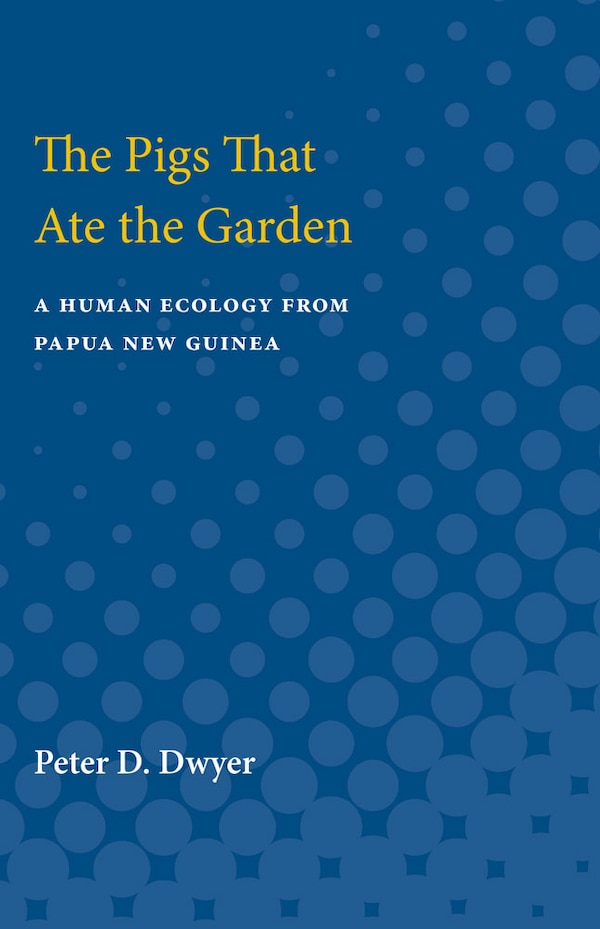
Choice Made Simple!
Too many options?Click below to purchase an online gift card that can be used at participating retailers in Village Green Shopping Centre and continue your shopping IN CENTRE!Purchase HereHome
Pigs That Ate the Garden by Peter D. Dwyer, Paperback | Indigo Chapters
Coles
Loading Inventory...
Pigs That Ate the Garden by Peter D. Dwyer, Paperback | Indigo Chapters in Vernon, BC
From Peter D. Dwyer
Current price: $46.95

Coles
Pigs That Ate the Garden by Peter D. Dwyer, Paperback | Indigo Chapters in Vernon, BC
From Peter D. Dwyer
Current price: $46.95
Loading Inventory...
Size: 0.7 x 9 x 0.94
*Product information may vary - to confirm product availability, pricing, shipping and return information please contact Coles
In The Pigs That Ate the Garden, Peter D. Dwyer examines the subsistence ecology of 109 Etolo people who live on the wet, forested mountain slopes of Papua New Guinea. Dwyer describes the community's practice of deliberately placing pigs in gardens so that the pigs depredate the vegetation there. He shows how this practice is actually the community's method of sending a message to itself that serves to resynchronize a switch from sweet potato gardening to sago starch processing. The interrelationships of the different food-producing activities of the Etolo gardening, hunting, tree-crop cultivation, etc. are shown to have seasonal rhythms, and these rhythms maximize the Etolo's use of food resources at appropriate times and areas. Dwyer argues that the shape of Etolo ecology is ultimately driven by sociocultural, rather than environmental, forces, and is set within a theoretical frame concerning processes of communication and change in open systems. | Pigs That Ate the Garden by Peter D. Dwyer, Paperback | Indigo Chapters
In The Pigs That Ate the Garden, Peter D. Dwyer examines the subsistence ecology of 109 Etolo people who live on the wet, forested mountain slopes of Papua New Guinea. Dwyer describes the community's practice of deliberately placing pigs in gardens so that the pigs depredate the vegetation there. He shows how this practice is actually the community's method of sending a message to itself that serves to resynchronize a switch from sweet potato gardening to sago starch processing. The interrelationships of the different food-producing activities of the Etolo gardening, hunting, tree-crop cultivation, etc. are shown to have seasonal rhythms, and these rhythms maximize the Etolo's use of food resources at appropriate times and areas. Dwyer argues that the shape of Etolo ecology is ultimately driven by sociocultural, rather than environmental, forces, and is set within a theoretical frame concerning processes of communication and change in open systems. | Pigs That Ate the Garden by Peter D. Dwyer, Paperback | Indigo Chapters


















